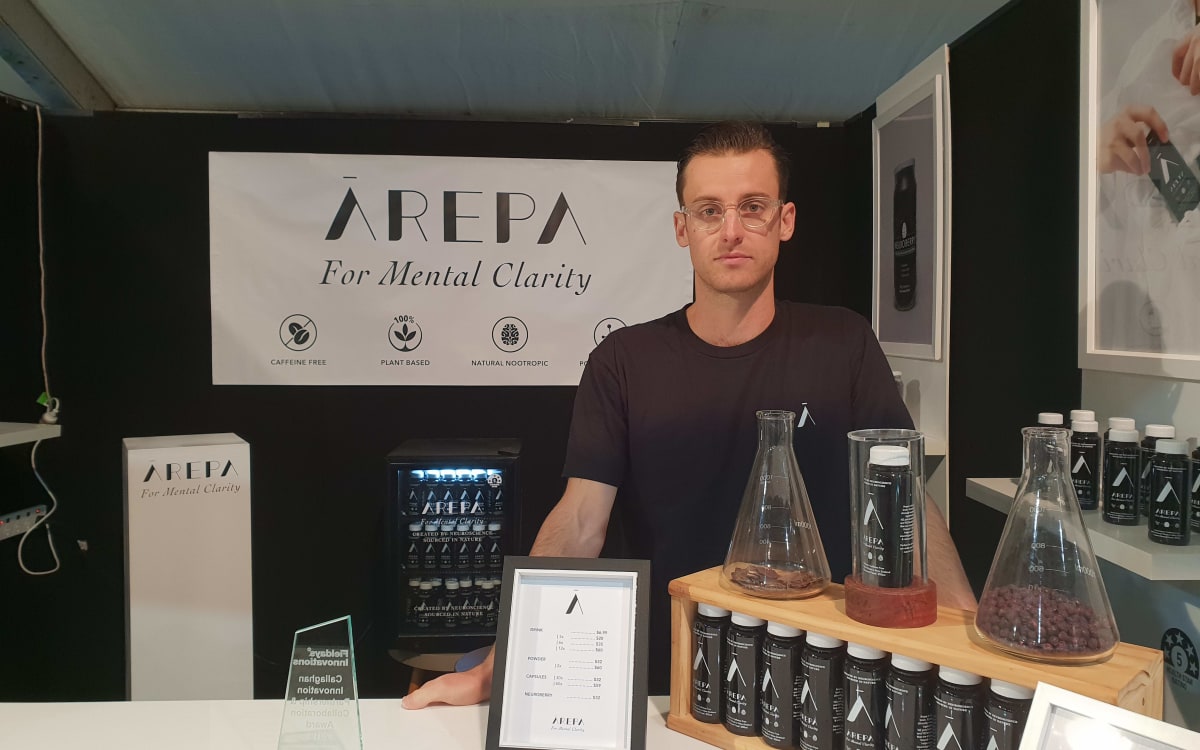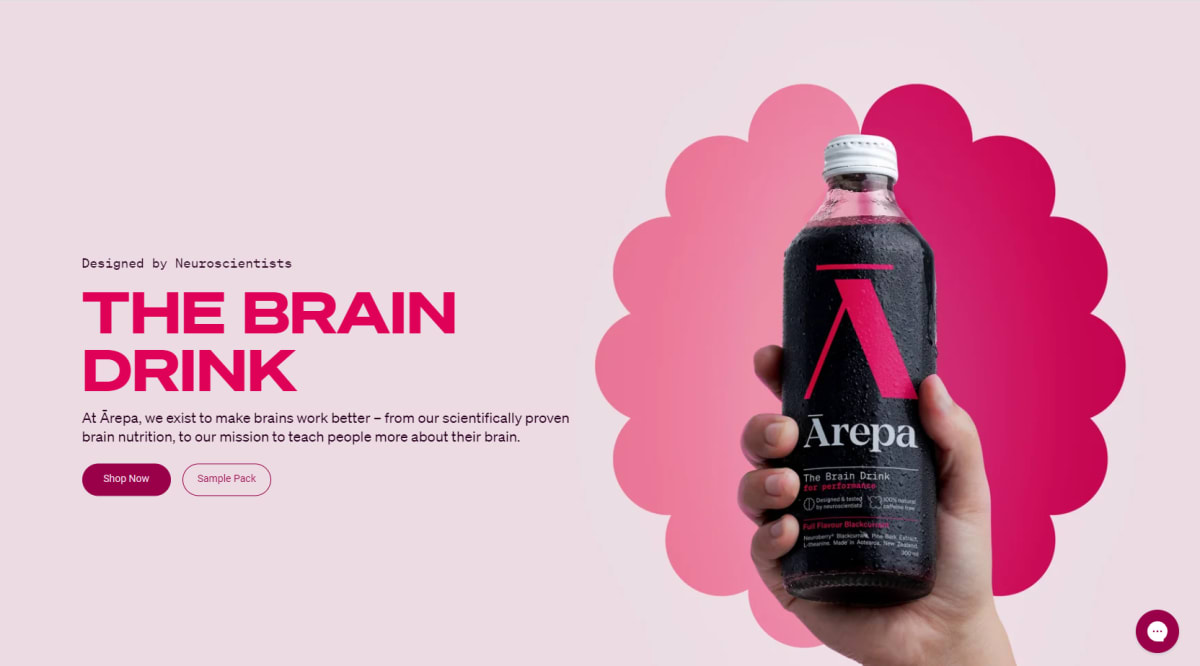
Ārepa has been dealt a blow by food authorities for unsubstantiated health claims, but the company says it's fallen afoul of an outdated food code.
Ārepa's website is impressive.
It shows the three key ingredients in its drinks and powders: Neuroberry (trademarked) blackcurrant, pine bark extract or Enzogenol (trademarked), and L-theanine, a rare amino acid from green tea.
Scroll down and you see the list of research partners: universities in New Zealand, Australia and the United States, the Dementia Centre for Research Collaboration in Australia, and government agencies Callaghan Innovation and Plant and Food Research.
There are more than 30 clinical research projects and trials on the individual ingredients or the actual Ārepa products.
But at the bottom of the homepage is a note that the company behind the drink, Alphagen, has received a notice from government agency New Zealand Food Safety about the health claims over its Ārepa products and the labelling on them. It's the first time NZFS has had to use this provision of the Food Act 2014.
It says some of the claims made are in breach of the Australia New Zealand Food Standards Code.
The note goes on to say that health claims attributed to Enzogenol (pine bark extract) and L-theanine have not been substantiated, and claims that can be attributed to the drink's vitamin C content do not identify that vitamin C is responsible for that benefit.

The company says it is working with New Zealand Food Safety to remove or correct the health claims on the Ārepa product labels and advertising material.
New Zealand Food Safety told The Detail it has been working with Alphagen for years on the product, "including how best to design scientific trials to test and prove its claims".
The deputy director general Vincent Arbuckle says the Food Act allows for innovation in food production so long as it can be backed with good science-based evidence. In most instances, NZFS can work with a company to ensure the information it is giving its customers can be substantiated, he says.
"Despite these efforts there has been a growing gap between the health claims made by Ārepa and the scientific evidence that substantiates these claims," says Arbuckle.
In the same week that the directive came from NZ Food Safety, scientists involved in trials also raised their concerns about the claims.
Associate professor Nick Gant, a neuroscientist who works in the department of exercise sciences at the University of Auckland, ran the first randomised, controlled trial of the effects of a prototype of Ārepa – funded by the company in order to support its product claims.
Those claims include that the product is a short-term brain boosting drink, which you "take 30 minutes before you need to perform ... to get the full benefits of our clinically tested formula". But Gant says there's no research to test that specific claim – the drink hasn't been tested with that 30 minute claim in mind.

Gant says he's spoken out because he is no longer under a research contract to Alphagen which would prevent him from speaking publicly.
He explains to The Detail the types of clinical trials carried out or underway on Ārepa. In one case, rugby league players were tested on their cognitive abilities after drinking Ārepa for a week, and then a placebo for a week.
"And they did significantly better [with the product] in that test after that week," he says. But that wasn't the same as getting a boost 30 minutes after consumption.
The formula of the drink is based on good science, Gant says. It contains natural products that are bio-actives that could stimulate brain waves without using caffeine, and "it's full of vitamin C and polyphenols that give your brain these important nutrients that it needs to perform better".
"It's a clever way of doing marketing, isn't it?" he says, comparing it to Red Bull's claim that their drink 'gives you wings'.
"But I think most consumers, after 30 minutes, are assuming something will happen because it was 'tested', and, as they say, is 'scientifically and clinically proven' – which it hasn't been."
And while the ingredients look good in isolation, the 'cocktail' of the drink, or how those ingredients interact, hasn't been thoroughly tested either.
Gant says the company is correct when it says the framework by which the Food Standards Act works is old-fashioned, but in his opinion the marketing for the drink has run away with its claims.
In spite of that, Gant says he hopes Ārepa becomes a Kiwi success story. After all, there's been a lot of investment in it – including scientists' time and taxpayer money.
"The company are doing their best now to bring their marketing back in line with what it should be, for the benefit of not deceiving the consumer ... and then hopefully going forward the studies that have been commissioned will generate the evidence to make the claims .... and it will be a billion dollar export drink for New Zealand," he says.
"And everyone that has been involved will be a winner, including me who helped at the start, and I'll be able to put it on my CV as well."
This story has been amended to reflect the fact that Dr Nick Gant himself only worked on a study on a prototype formula. His colleagues have worked on other studies on the effects of Ārepa.
Listen to the full podcast to find out why this drink, that is mostly New Zealand berry and apple juice, really does have something special in it.
Check out how to listen to and follow The Detail here.
You can also stay up-to-date by liking us on Facebook or following us on Twitter.








